Reading comprehension Normal Governance and Civics Worksheets for Ages 3-8
7 filtered results
-
From - To
Introduce your young learners to essential governance and civics concepts with our engaging reading comprehension worksheets designed for ages 3-8. These worksheets help children develop crucial reading skills while learning about normal governance structures and basic civic duties. Our expertly crafted activities feature age-appropriate texts, vibrant illustrations, and thought-provoking questions that stimulate critical thinking. Accessible and easy to understand, these printables are perfect for classroom use or at-home learning. By incorporating our worksheets into their routine, children will build a strong foundation in social studies and civic responsibility, setting the stage for informed and active citizenship in the future.
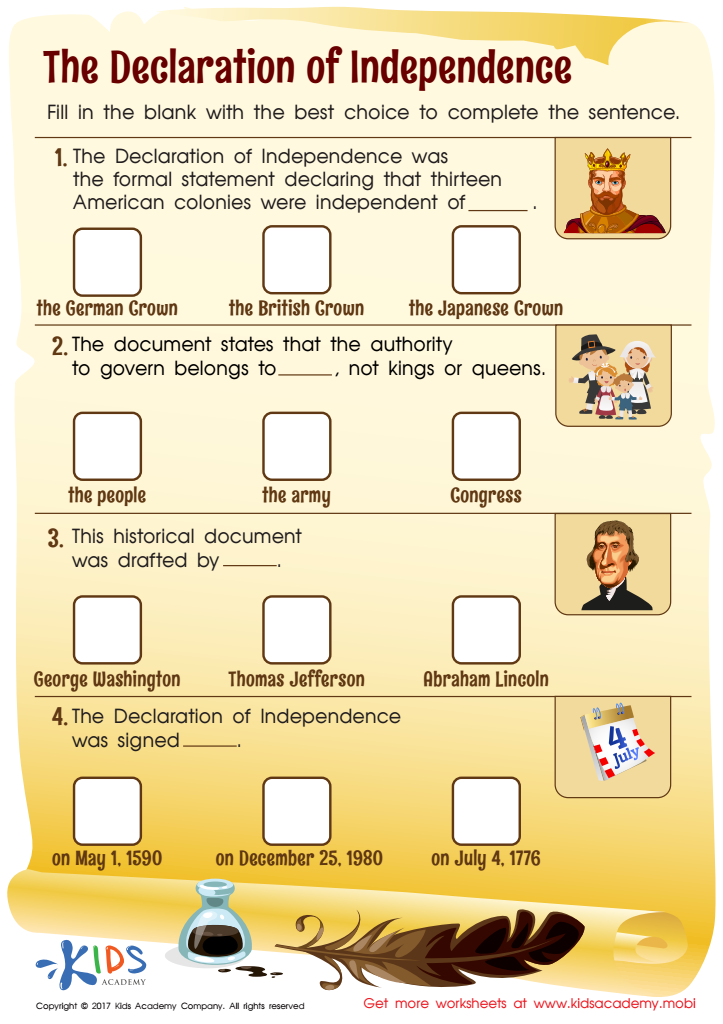

Declaration of Independence Worksheet
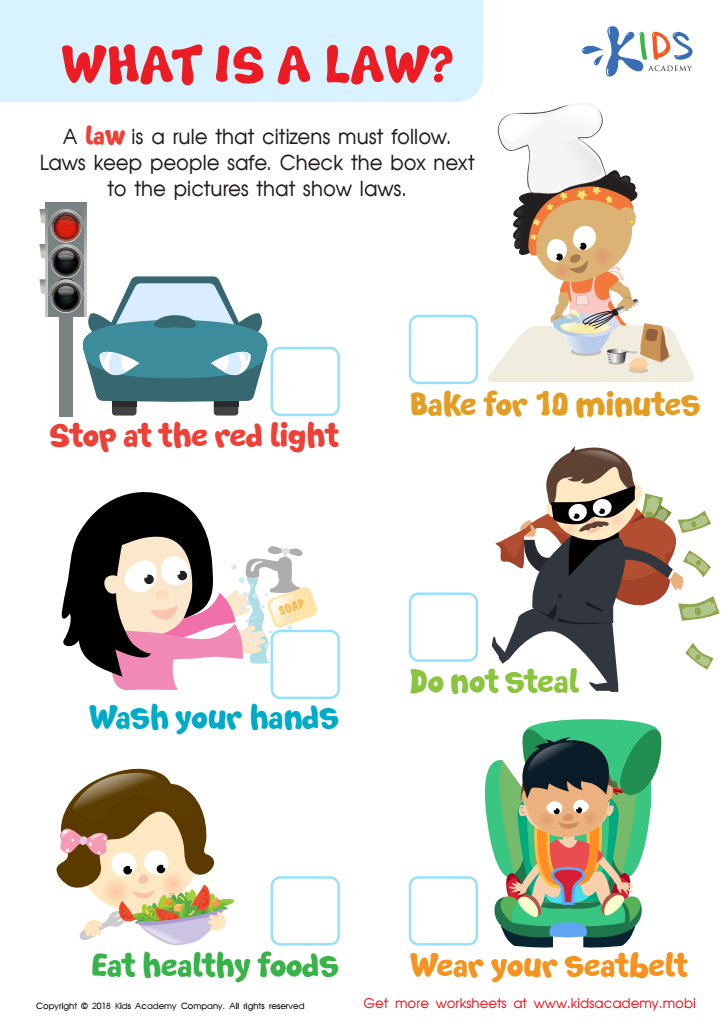

What is a Law? Worksheet
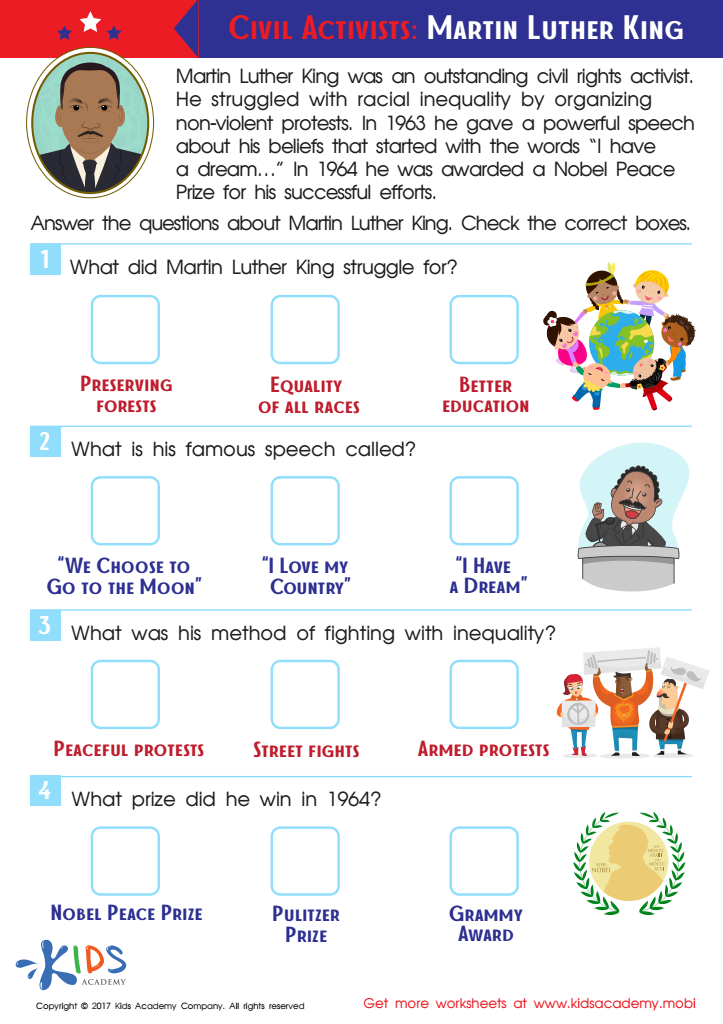

Martin Luther King Worksheet
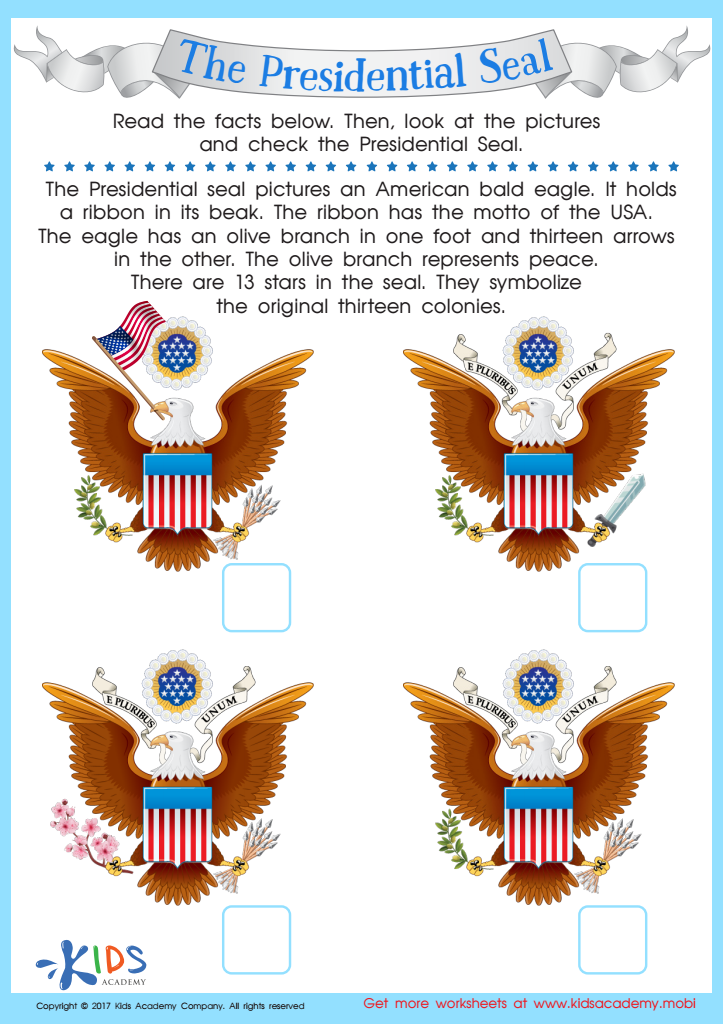

The Presidential Symbol Worksheet
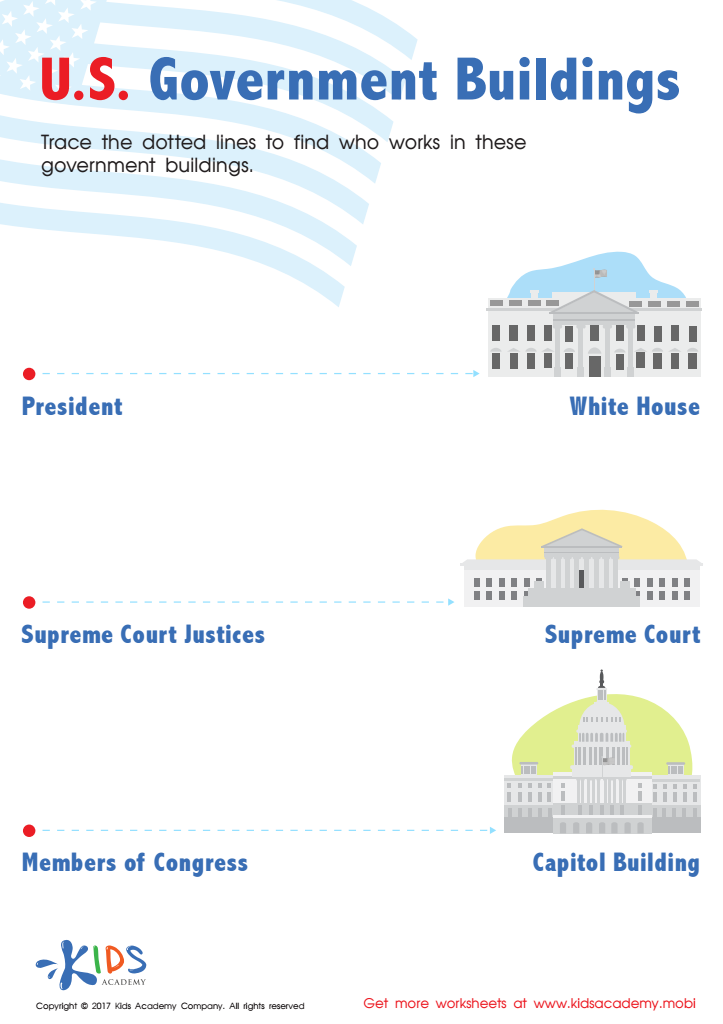

US Government Buildings Printable
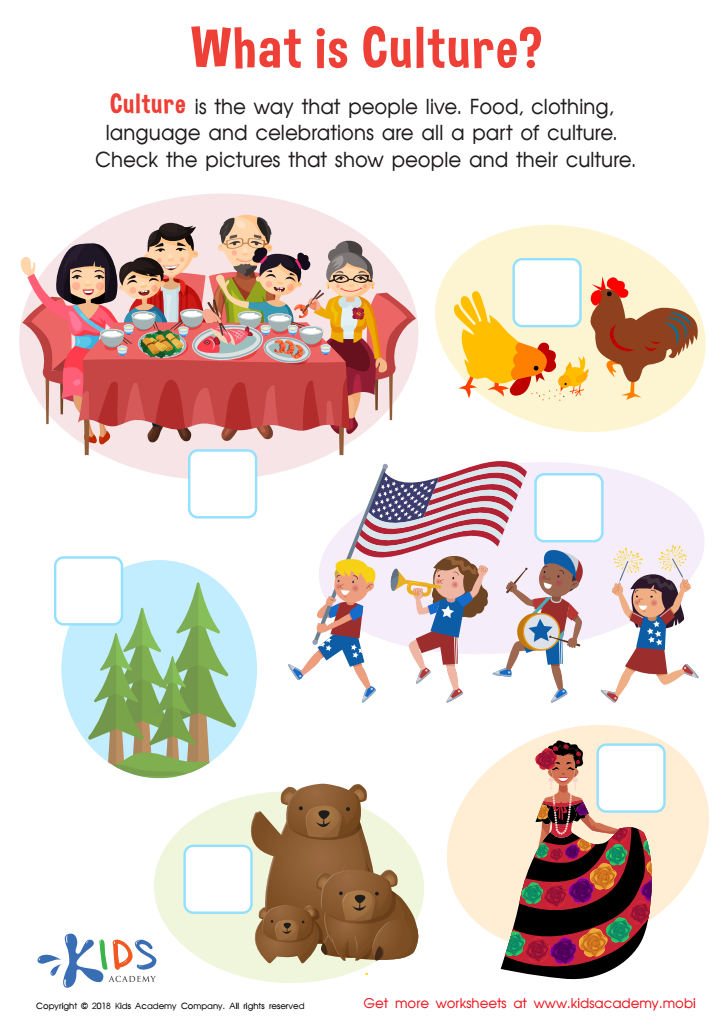

What Is Culture? Worksheet
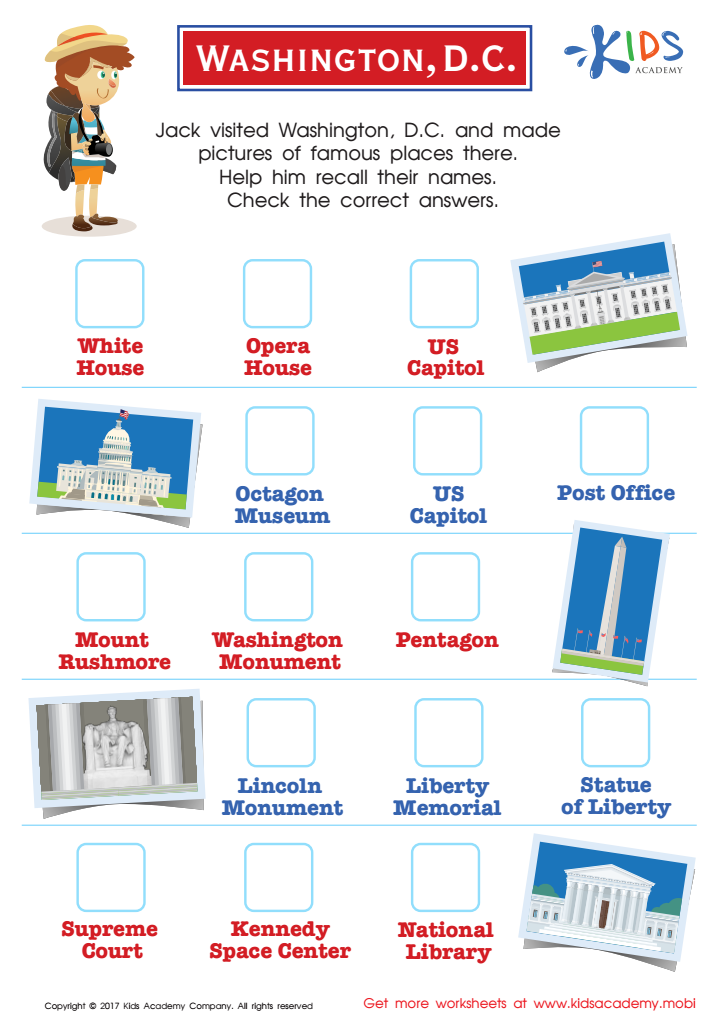

Washington D.C. Printable Worksheet
Parents and teachers should prioritize reading comprehension, normal governance, and civics for children ages 3-8 because these areas lay the foundation for lifelong learning, responsible citizenship, and personal growth. Early childhood is a critical period for brain development, and introducing children to reading comprehension at this stage helps hone their cognitive skills, broadens vocabulary, and fosters a love for learning.
Reading comprehension ensures that children not only recognize words but understand their meaning and context, essential for academic success across subjects. It enhances critical thinking, problem-solving, and the ability to follow complex instructions—skills invaluable in every aspect of life.
Introducing governance concepts and civics educates young minds about community functioning, rights, and responsibilities. It instills values like fairness, teamwork, and empathy. Understanding governance helps children appreciate rules and the role of different authorities, fostering respect and constructive participation as they grow.
Moreover, an early focus on civics encourages a sense of belonging and involvement in one’s community, laying the groundwork for engaged, informed citizens. By understanding their role in their community and larger society, children learn the importance of their actions, influencing positive behavior from a young age.
In essence, foundational knowledge in these areas equips children with essential life skills, empowering them to become thoughtful, active, and responsible adults.
 Assign to My Students
Assign to My Students










